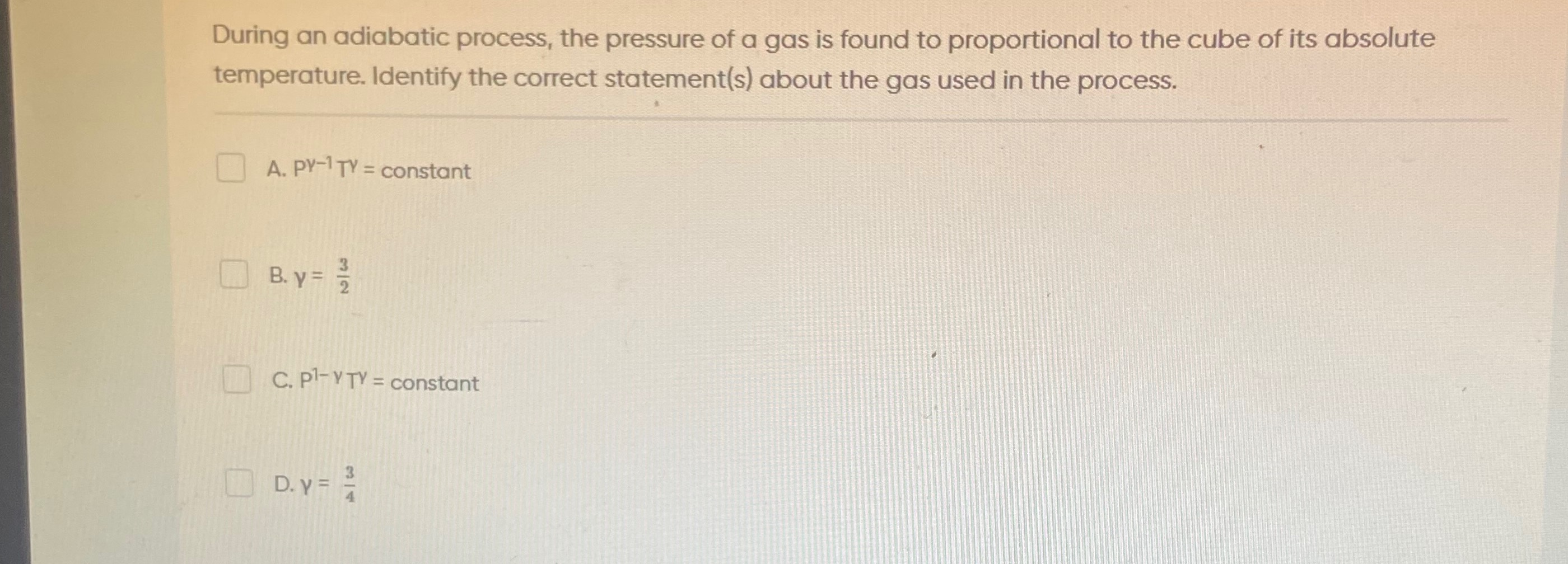Question
Question: During an adiabatic process, the pressure of a gas is found to proportional to the cube of its absol...
During an adiabatic process, the pressure of a gas is found to proportional to the cube of its absolute temperature. Identify the correct statement(s) about the gas used in the process.

A
Pγ−1 Tγ = constant
B
γ=23
C
P1−γ Tγ = constant
D
γ=43
Answer
Options B and C
Explanation
Solution
Here's a breakdown of the solution:
-
Adiabatic Process and Ideal Gas Law:
- For an adiabatic process: TVγ−1=constant.
- Using the ideal gas law (PV=nRT), we can express volume as V=PnRT.
-
Deriving the Relationship:
- Substituting V in the adiabatic equation: T(PnRT)γ−1=constant.
- Simplifying: Pγ−1Tγ=constant, which can be rearranged to Pγ−1T−γ=constant.
-
Applying the Given Condition:
- We are given that P∝T3, which means P=kT3 for some constant k.
- Substituting this into the derived equation: (kT3)γ−1T−γ=constant.
- This simplifies to kγ−1T3(γ−1)−γ=constant.
- For this to be independent of T, the exponent of T must be zero: 3(γ−1)−γ=0.
-
Solving for γ:
- Solving the equation 3γ−3−γ=0 gives 2γ=3, so γ=23.
-
Checking the Options:
- Option A: Pγ−1Tγ=constant. This is incorrect because our derived relation is Pγ−1T−γ=constant.
- Option B: γ=23. This is correct.
- Option C: P1−γTγ=constant. Since P1−γ=Pγ−11, this option is equivalent to Pγ−1Tγ=constant, which is correct.
- Option D: γ=43. This is incorrect.
Therefore, the correct options are B and C.
